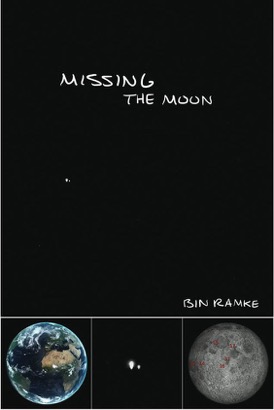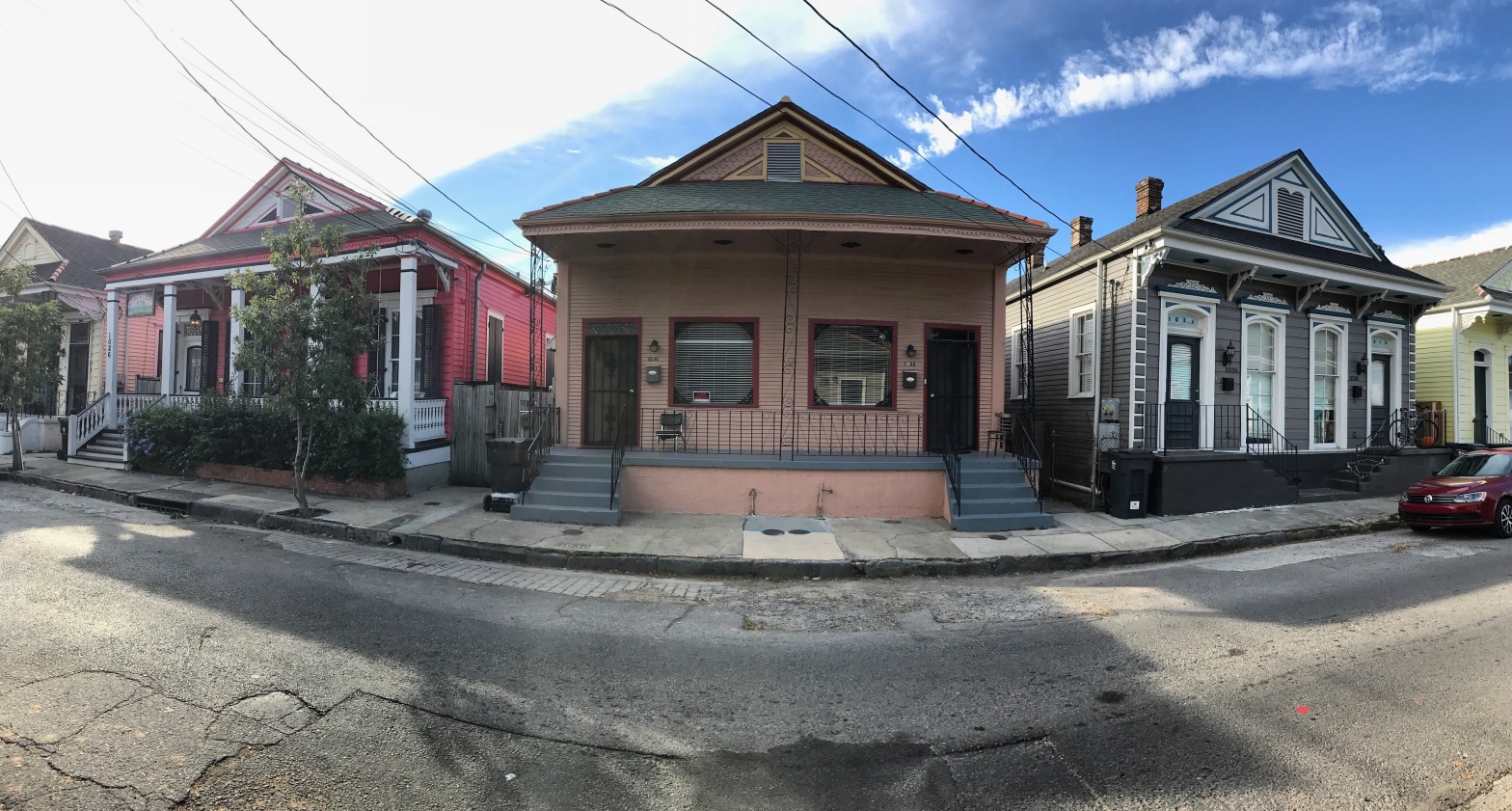As fun as Mardi Gras is, Louisiana has much more to offer in terms of entertainment.
Louisiana has been home to many celebrated authors, such as Anne Rice, Tennessee Williams, Kate Chopin, John Kennedy Toole, and Truman Capote. But there are some lesser-known authors and works that capture unique facets of this mystical state, which is marked by an incredible resilience, breathtaking swampscapes, and a long list of past traumas from the slave trade to the devastation wreaked by Hurricane Katrina.
Here are 10 stunning books of poetry set in Louisiana(ish):
1. Blood Dazzler by Patricia Smith (Coffee House Press, 2008)

While Smith isn’t a Nola native, Blood Dazzler remains one of the best poetry collections on Hurricane Katrina to date. With quiet fury and expertly crafted tension, Blood Dazzler takes the reader through the utter terror of wading and waiting through the storm. The cadence of the language and stunning imagery will blow you away too.
“Scraping toward the first of you, hungering for wood, walls, unturned skin. With shifting and frantic mouth, I loudly loved the slow bones
of elders, fools, and willows.”
2. Missing the Moon by Bin Ramke (Omnidawn, 2014)

A few years ago, I reviewed Missing the Moon for The Volta blog. There was a point in time where both Ramke and I lived in Denver. I approached him after a reading one night when his poetry struck me as familiar. “Are you Cajun, too?” I asked. “Yes, how did you know?” he said, and we proceeded to chat for the next few hours about our shared history.
Missing the Moon perfectly captures the insidious encroachment of Americanization that nearly destroyed Cajun culture after the Red Scare. Forced into the swamps, Ramke shows us how Cajuns belong on neither land nor water, speak neither French nor English, instead, remain displaced between worlds.
“I translate myself into myself—
sane phrases, words and words
Returning into Sabine Bay we would
stare forward into a horizon the dark
smear of cypress and palmetto not
yet arisen to separate sky from water
the shape of the boat a word…”
3. Book of Southern and Water by Emmalea Russo (Poor Claudia, 2013)

I stumbled upon this treasure when I was really homesick. In the midst of a 3-year masters program in Boulder, CO, over 1,300 miles away from LA, everything around me made me feel dislocated. The climate and culture could not be more different.
Reading this felt like coming home. Like being wrapped in humidity and warm rivers. Russo captures the Louisiana landscape the way one photographs someone they love.
“this is the bottom this is the bottom
the bottom of the country moist crowded
something like safe inside
the time it takes for skin to dry…”
4. Smoked Mullet Cornbread Crawdad Memory by Rain C. Goméz (Mongrel Empire Press, 2012)

When I first saw the name of this book, I thought: A) Could you repeat that? And B) A redneck definitely wrote this. I couldn’t have been more wrong. Goméz, a Ph.D. working within TransIndigeniety and Diaspora in Literary and Cultural Studies, Ethnic Studies, and Creative Writing, is a self-identified, Louisiana Creole mestiza with a stunning perspective. These prose poems illustrate a unique and underrepresented intersection of Louisiana. Plus, the book took home the Native Writers Circle of the Americas’ 2009 First Book Award in Poetry.
“The layers of my skin are made
From story and memory.
I am fashioned from the experience
Of mothers,
Of fathers.
I move in constant awareness that
This act of being was not easily won. “
5. Slab by Selah Saterstrom (Coffee House Press, 2015)

Originally from the Mississippi Gulf Coast (and the MS/LA border), Saterstrom was deeply affected by the aftermath of Hurricane Katrina. While post-Katrina Louisiana is often used as a backdrop for dystopian works, this collection of experimental, political, playlike, prose poems is undeniably one of a kind. Slab is a meditation on disaster. In it, we follow Tiger, a southern woman turned stripper. The decay left in the wake of Hurricane Katrina she must overcome represents the lingering post-Civil War deterioration of these Gulf states and serves as a call to action. Bottom in education, healthcare, infrastructure, crime, and overall quality-of-life, Slab refuses to romanticize or hide our wreckage.
6. Boy with Thorn by Rickey Laurentiis (Pitt Poetry Series, 2015)

“It’s the experience of being from a place and then, suddenly, that place being caused to changed—radically, quickly—such that in some ways it’ll never be what you remember it as again. So I want to say, like the military child, I’m at work to get back to this remembered home that, in some way, doesn’t anymore exist.”—Rickey Laurentiis
“Rickey Laurentiis’ debut poetry collection, Boy with Thorn, arrives at a crucial time in American literary discourse, engaging the oppressive and harmful legacies of our nation with clarity and intelligent critique. Laurentiis’ collection as a whole is honest in recognition of a life lived through violence. The reader must praise the landscapes in this collection, in the midst of its terror and destruction, for also producing Laurentiis’ lyric beauty and wisdom. His relentless recognition of personal truths and reclamation of narratives formerly silenced is an example of poetry at its highest form.” Yael Massen, MICROREVIEW: RICKEY LAURENTIIS’S BOY WITH THORN, Indiana Review.
7. One Big Self by C.D. Wright (Copper Canyon Press, 2007)

Louisiana is the prison capital of the world. “Compare Louisiana’s rate of 816 people per 100,000 with Russia’s 492, China with 119, France with 100, and Germany with 78…Louisiana has long been much more severe in sending black people to prison than whites, at least after black people were no longer slaves…Angola Penitentiary remains the largest maximum security prison in the United States. There are over 5000 prisoners at Angola alone. The average sentence for prisoners there is 93 years. About 95 percent of people serving time at Angola will die there under current laws.”—Bill Quigley, Louisiana Number 1 in Incarceration, Huffington Post.
After C.D. Wright, a renowned poet from Arkansas’ Ozarks, was invited by photographer, Deborah Luster, to Angola Prison, she felt moved to write One Big Self. Part prison portraits, part poetry, “the discrepancies between the photographer, writer, viewer, and inmate are multiple, blaring” (Wright). Many of these haunting images resemble Civil War-era, tintype, portraits of slaves. The message is clear, and the evidence—hard to deny.

8. The New Testament by Jerricho Brown (Copper Canyon Press, 2014)

Dripping with biblical nomenclature and gospel-like lyricism, The New Testament is an incredible, original collection of poetry. It is almost impossible to separate Brown, a self-identified gay man of color and Shreveport native, from the book’s narrator, which perhaps is the point. The text is imbued with intimacy, exile, ambivalence, struggle, and passion. Like Lucifer, the narrator is cast out of heaven, yet he finds small ways of coping, replacing the omnipotent “He” with a lover. “In the best moments, Brown weaves together strains of religious invocation with his uneasy identity as a southern, gay, black man into a beguiling self-myth.”—Craig Morgan Teicher, A Collection Of Poems That Offers An Unlikely Kind Of Hope, NPR
Psalm 150Some folks fool themselves into believing,But I know what I know once, at the heightOf hopeless touching, my man and I holdOur breaths, certain we can stop time or maybeEliminate it from our lives, which are shorterSince we learned to make love for each otherRather than doing it to each other. As for praiseAnd worship, I prefer the latter. Only memoryMakes us kneel, silent and still. Hear me?Thunder scares. Lightning lets us see. Then,Heads covered, we wait for rain. Dear Lord,Let me watch for his arrival and hang my headAnd shake it like a man who’s lost and lived.Something keeps trying, but I’m not killed yet.
9. You Good Thing by Dara Wier (Wave Books, 2013)

This collection doesn’t explicitly mention Louisiana or Katrina, but it is implied by the abundance water imagery and wild chaos of the text. Wier is originally from New Orleans. “Many of Weir’s stanzas draw a reader away from a recognizable world into one in which women waltz with bears, houseflies chat with colonels, and the absence of sound makes a material presence.”—Harvard Review
“You took the boat onto flattened waters./ White wall of blue morning fog to slip into./ You withstood what is was that was wailing you through./ There you were standing on nothing, looking down at two/ Blackfeathered slashes your two hands held on to.”
10. Flood by J. Bruce Fuller (Swan Scythe Press, 2013)
 “Written by current Stegner Fellow J. Bruce Fuller, Flood is the kind of read that sticks with you, like the lingering floodwaters of a rain storm, like the water lines you can see when they recede. The book is split into two parts “1927” and “2005,” each indicating a different year when water altered the landscape and lives of the people of Louisiana. Fuller reaches into his family and personal history to tell stories of what is lost when waters rise, but also what one learns from experiences like this, such as in “The River Is In Us”: “Each of us is planted / in the earth for a time / when the river inside us / mouths open to the sea.”—Kimberly Ann Southwick, 3 Chapbook Reviews: Loving and Living in Louisiana, Ploughshares
“Written by current Stegner Fellow J. Bruce Fuller, Flood is the kind of read that sticks with you, like the lingering floodwaters of a rain storm, like the water lines you can see when they recede. The book is split into two parts “1927” and “2005,” each indicating a different year when water altered the landscape and lives of the people of Louisiana. Fuller reaches into his family and personal history to tell stories of what is lost when waters rise, but also what one learns from experiences like this, such as in “The River Is In Us”: “Each of us is planted / in the earth for a time / when the river inside us / mouths open to the sea.”—Kimberly Ann Southwick, 3 Chapbook Reviews: Loving and Living in Louisiana, Ploughshares
And if she is angry
her belly constricted
by our levees
she will erupt
silt like ash

